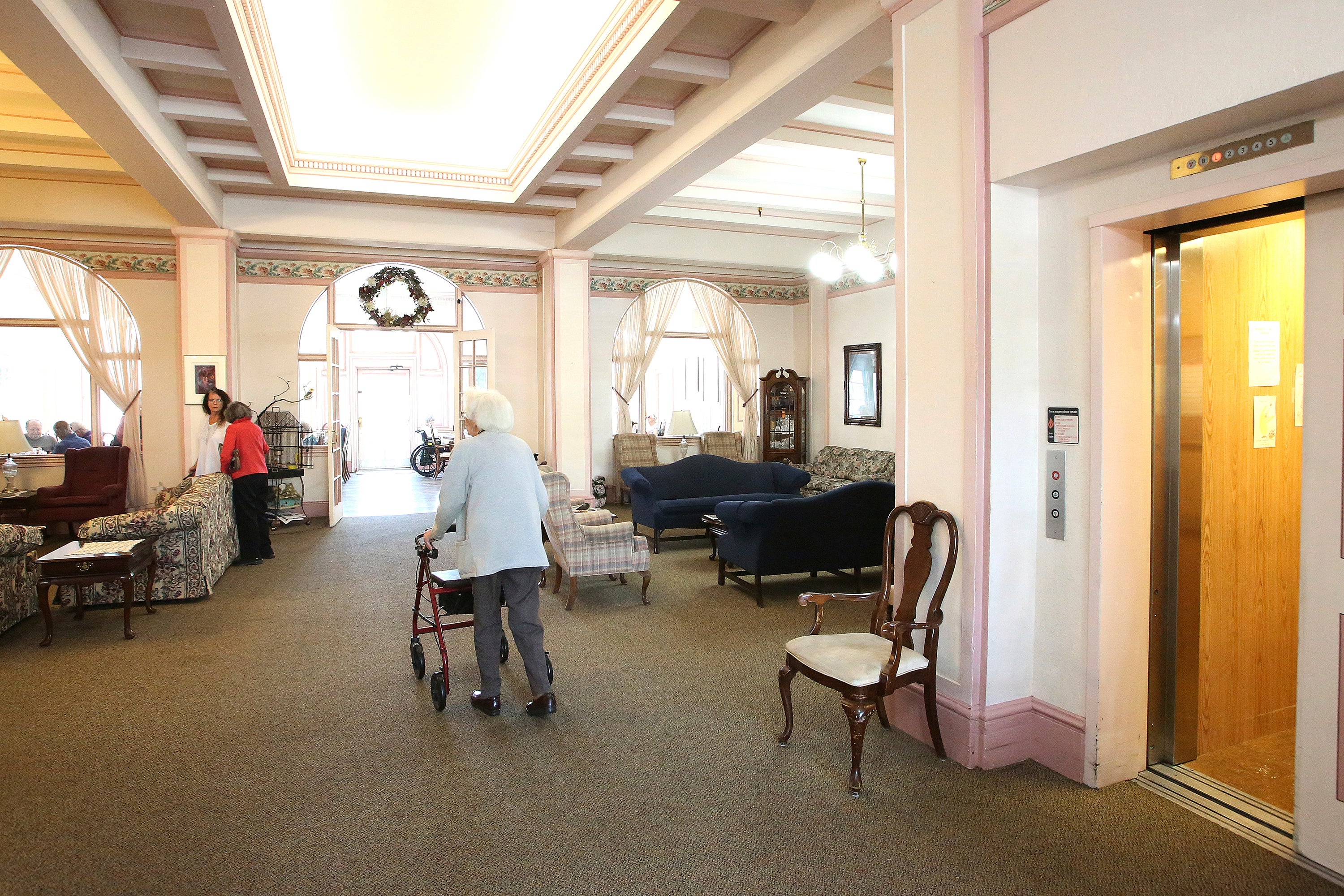What if you can’t afford long-term care?
As many as 8 in 10 older Americans couldn’t afford more than four years in an assisted living facility or two years in a nursing home, according to a recent analysis

As many as 8 in 10 older Americans couldn’t afford more than four years in an assisted living facility or two years in a nursing home, according to a 2023 analysis by the National Council on Aging and the LeadingAge LTSS Center @UMass Boston.
This is particularly hard for people in the monetary middle, defined by Pew Research Center as “those with an annual household income of about $52,000 to $156,000 annually in 2020 dollars for a household of three.” They don’t have enough to pay for long-term care, but they have too many assets to qualify for government assistance. Medicare also doesn’t cover long-term care. What are the options for the 47 million households with older adults who will face this scenario?
From reverse mortgages to hybrid insurance policies, here are some avenues available to people who can’t afford the care they need.
CONSIDER A REVERSE MORTGAGE
If you have significant equity in your home and you’re at least 62 years old, a reverse mortgage can provide a helpful stream of income. A reverse mortgage is a loan or line of credit based on your home’s equity. You tap the equity now and pay the loan off when the home is sold.
“What most people do, especially in a situation like a long-term care issue — once they’re out of the house, you sell it and use the proceeds to pay it off,” says Nicholas Bunio, a certified financial planner in Downingtown, Pennsylvania.
A reverse mortgage has downsides — closing costs are expensive, similar to taking out a traditional mortgage, and you’ll leave less to heirs — but if you’re planning to receive home care or there’s a spouse still at home, it can be a solid option. (Once there’s no one living in the home for a year or more, the home must be sold to pay back the loan.)
PRICE OUT INSURANCE
If you have no major health issues, get quotes for long-term care insurance. Although experts recommend purchasing by age 65, you may be insurable up to age 79. Premiums can be pricey, but note that a semiprivate room in a nursing home costs more than $94,000 per year, according to the 2021 Cost of Care Survey by Genworth, an insurance company.
“In many cases, long-term care insurance is a lot less expensive than the actual cost of care,” says Michelle Gessner, a certified financial planner in Houston. “So $1 of premium gives you multiple dollars of benefits, and that’s not the case with paying for it out of pocket.”
Another option may be a permanent life insurance policy with a long-term care rider, often called a hybrid policy. Arrangements vary, but typically you can use some or all of your death benefit to pay for long-term care during your lifetime, and anything you don’t use will be paid to your estate when you die.
“People complain that they’re expensive,” Gessner says, but she points out that nursing home care can cost $6,000 to $7,000 a month (or more). “What I tell people is just get what you can afford,” she says. “It’s not all or nothing.”
LOOK INTO FACILITIES WITH BENEVOLENT FUNDS
Some nursing homes or assisted living communities offer benevolent care, meaning they’ll take someone in who doesn’t have enough money to pay full freight or who can’t pay full price for long. When someone runs out of money, the benevolent fund covers the difference for as long as they need care. (They’ll typically collect Social Security and pension payments that may come in to help cover costs.)
“They can be a good alternative for people who think they won’t have enough financial assets,” says Diane Pearson, a certified financial planner in Wexford, Pennsylvania.
Benevolent care funds are often connected to faith-based communities. A search for faith-based facilities in your area might yield some options.
ASK ABOUT A LIFE SETTLEMENT
If you have a life insurance policy and you’re considering letting it lapse or taking the cash value from it, a life settlement may be the better option. In a life settlement, a third party buys your insurance policy, and you typically receive between 5% and 25% of the value of the death benefit.
“There are investors out there who will basically make the premium payments on your behalf, but they keep the policy proceeds when you pass away,” says Christopher Lyman, a certified financial planner in Newtown, Pennsylvania. You might make this choice in a financial crisis. “The only reason you would do that is kind of like a last option,” he says.
___________________________________
This article was provided to The Associated Press by the personal finance website NerdWallet. Kate Ashford is a writer at NerdWallet. Email: kashford@nerdwallet.com. Twitter: @kateashford.
RELATED LINKS:
NerdWallet: Should you use a reverse mortgage to pay for long-term care?
https://bit.ly/nerdwallet-reverse-mortgage-long-term-care
Genworth: Cost of Care Survey
https://www.genworth.com/aging-and-you/finances/cost-of-care.html
METHODOLOGY:
The 2023 updated analysis by the National Council on Aging and the LeadingAge LTSS Center @UMass Boston used the latest data from the Health and Retirement Study, or HRS, a longitudinal panel study that surveys a representative sample of about 20,000 people in America. The analysis segmented the HRS sample of adults 60 and older into quintiles based on the net value of their total wealth. A robust 18,271 households were included in the analysis.
National Council on Aging. (April, 2023.) “Addressing the Nation’s Retirement Crisis: The 80%.” https://ncoa.org/article/addressing-the-nations-retirement-crisis-the-80-percent-financially-struggling
Bookmark popover
Removed from bookmarks